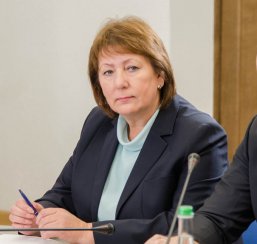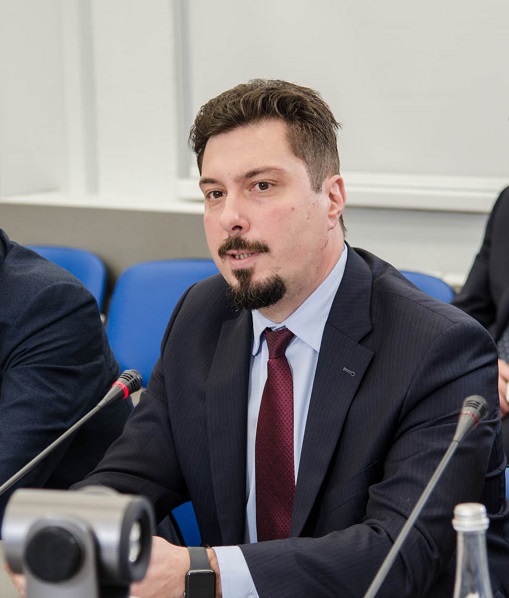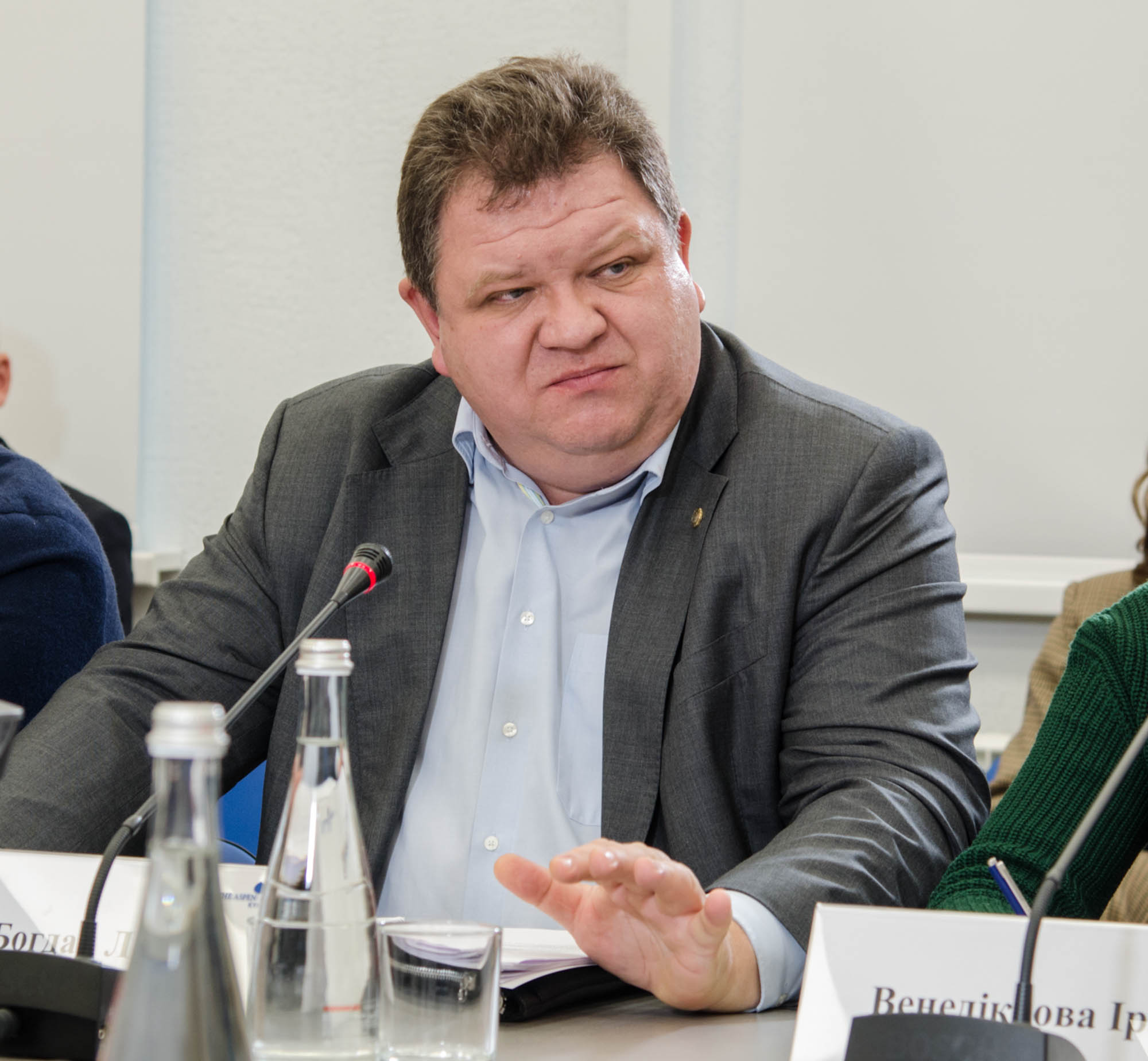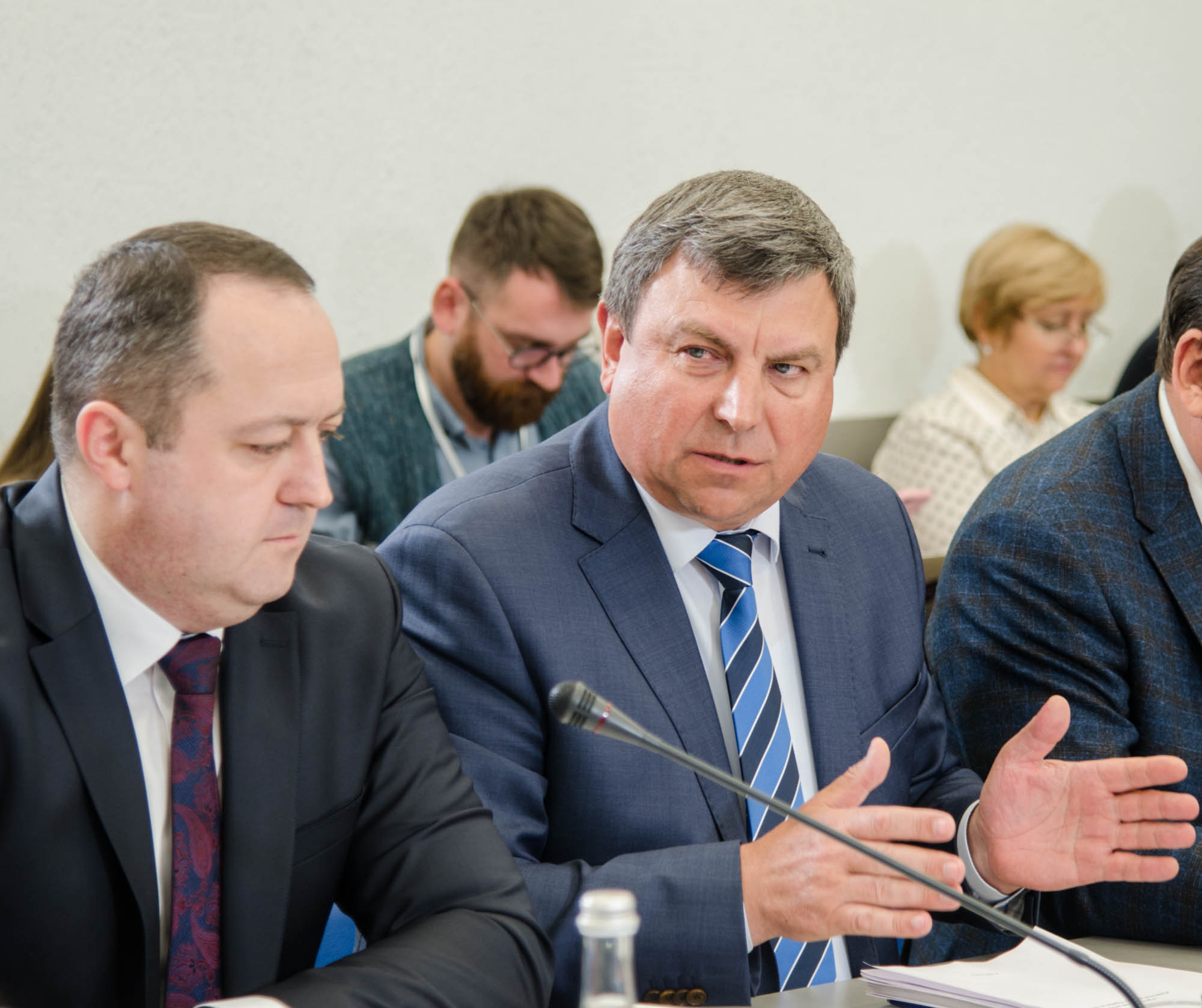Contact center of the Ukrainian Judiciary 044 207-35-46

President of the Supreme Court Valentyna Danishevska told about this at the round table “Trust in Court and Judicial Reform: Dialogue between Stakeholders” on 25 October 2019. The event was organized by Aspen Institute Kyiv in cooperation with the Council of Europe Project “Support to the Implementation of the Judicial Reform in Ukraine”.
Valentyna Danishevska put emphasis on the common desire of the legislative, executive and judicial branches of power to improve the situation in the judicial system. However, according to her, it is necessary to choose appropriate forms of reformation, which would not violate key values. She underlined that the judiciary declared that Ukraine had chosen democratic way providing the distribution of power. The legislative, executive and judicial powers should be independent on each other; they should interact without interference into the activity of each other.
President of the Supreme Court remarked that the judicial power worked over the improvement of the quality of services provided for citizens, accepted criticism, if it was justified. At the same time, she drew attention to the significant gap between percentage of citizens, who trusted in courts and participated in court hearings, and those, whose trust in courts was based only on information about their activity from the mass-media. To decrease this gap, the state programme on forming citizens’ trust in courts was necessary. Valentyna Danishevska noted that there were issues to be solved by the judicial system; however, there were those to be solved by the state.
President of the Supreme Court underlined that the independent and unbiased court represented the foundation of the state; ensuring such independence was the task for all state authorities; harassment of judges did not let them move forward, as well as returned them back. She also called all stakeholders, and primarily the legislators, upon dialogue, since the adopted draft Law of Ukraine No. 1008 of 29 August 2019 “On Amending Certain Laws of Ukraine Regarding the Operation of Judicial Governance Bodies” almost had not been discussed with the judicial power. The draft law of Ukraine on amending the Commercial Procedure Code of Ukraine, Civil Procedure Code of Ukraine, Code of Administrative Judicial Proceedings of Ukraine as for upgrading the review of judgments in appeal and cassation procedure No. 2314 of 25 October 2019 had also been unexpected.
 |
 |
Secretary of the SC Grand Chamber Vsevolod Kniaziev noted that judges of first instance were tired of permanent reforms, assessment, reformatting of courts and other changes, and that had impact on their independence. In return, according the SC GC Secretary, at that time, it was necessary to pay attention to staffing issues: several courts of first instance did not work completely because of the lack of judges, in appeal instance half of the regular number of judges was missing. However, the main accents in the reform were put on the reduction of number of judges in the SC and the liquidation of the High Qualification Commission of Judges of Ukraine, which would indefinitely postpone the appointment of judges in first and appeal instances. In Vsevolod’s Kniaziev opinion, it is incorrect.
The SC Vice-President, President of the Commercial Cassation Court within the SC Bohdan Lvov remarked that expressions of some politicians, who had vividly humiliated the authority of the judicial power, and sometimes even had called upon the non-execution of judgments, inter alia, had had impact on citizens’ trust in court. He drew attention to the investigation of the World Bank regarding the trust in courts in different countries, particularly, Bulgaria, Albania etc. It testified that markers of trust in court among those who had applied their services, and those, who had not experienced with the work of court, were different within 2%–5%. At the same time, in Ukraine these markers vary significantly. Bohdan Lvov informed, that in his opinion, that fact testified that the mistrust in court in Ukraine had been artificially cultivated for a long time; and if there was a real desire to renew the trust in court, primarily, statesmen, politicians and functionaries had to refrain from groundless accusations of judges. At the same time, according to him, if there are particular drawbacks, they have to be discussed intrinsically and removed as promptly as possible; however, the distribution of groundless accusations against all judges is not allowed.
Besides, the President of the Commercial Cassation Court within the Supreme Court underlined the inexpediency of halving the number of the SC judges, since they had excessive workload with cases; such situation had impact on the duration of their consideration. In his opinion, lack of staff in courts of first and appeal instances influences on the quality of judgments in these courts, and the SC judges, taking this fact into consideration, cautiously apply cassation filters. At the same time, the legislator proposes to make the filters stricter. He emphasized, that if only the level of insignificance was increased, it should be told that they would limit citizens’ access to justice. At the same time, if the amount of cases in the SC decreases, the High Council of Justice is authorized to adopt the decision on decreasing the regular staffing of the SC judges.

President of the Civil Cassation Court within the Supreme Court Borys Hulko drew attention to the fact that while comparing the data of studies of trust in courts held in 2014 and the present one, the difference in figures would be insignificant. That testified that the most of citizens, who participated in judicial hearings, were satisfied with courts’ work. In his opinion, the judicial reform has to be started from the down, and to move upwards gradually. The quality work of courts of first and appeal instance has to be ensured, appeal courts must represent the foundation of the judicial system. In general, according to him, presently, courts of first instance have to be staffed completely as soon as possible.